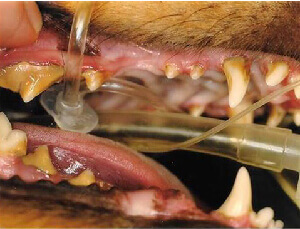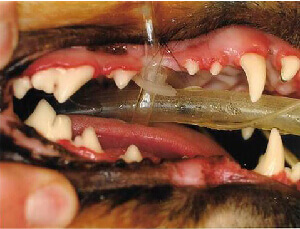Surgery and Dentistry
BRVC’s highly skilled doctors perform multiple surgical and dentistry procedures Monday through Friday mornings with the assistance of our well-trained technicians. Throughout their professional careers, our veterinarians have successfully performed thousands of orthopedic, reproductive, and other soft tissue surgeries as well as dental extractions. They are skilled in the most modern veterinary surgical techniques and always adhere to the highest standards of care. A well-trained veterinary technician is always on hand to carefully monitor surgery patients before, during and after surgery. In addition, we use state-of-the-art instruments and monitoring equipment to make sure your pet is comfortable, remains medically stable during the surgical or dental procedure, and recovers quickly and painlessly afterward.
Pre-operative blood testing is required for every animal undergoing sedation or gas anesthesia procedures. Unless contraindicated by one or more health condition(s), each pet must be current on its rabies vaccine and on testing for heartworm infection and tick-borne diseases. Pain medication will be administered before and during sedation and gas anesthesia procedures and may be administered after the procedure has been completed. In all surgery cases and in dental cases requiring extractions, anti-inflammatory and pain medications will be dispensed to keep your pet comfortable while recovering at home.
At discharge following any surgical or dental procedure, one of our technicians will review post-operative care instructions including medications to make sure your pet recovers as comfortably and painlessly as possible. We’ll even call you the day after a surgical or dentistry procedure to make sure Fido or Fluffy is eating, drinking, eliminating, and comfortable, and that you can administer medications as needed.
Dentistry
Healthy teeth and gums play an important role in the ongoing good health and wellbeing of your animal companion. Periodontal (dental) disease is one of the most commonly diagnosed conditions in adult cats and dogs and, if left untreated, can damage the heart, liver, lungs, and kidneys. Fortunately, dental disease can be prevented through routine brushing or the use of rinses or chews specifically formulated to help prevent plaque.


Periodontal disease begins when mouth bacteria form plaque, a substance that sticks to tooth surfaces. Minerals found in saliva harden the plaque into dental calculus (tartar), which is firmly attached to the teeth. As plaque and calculus spread under the gum line, bacteria secrete toxins that can result in gingivitis (gum inflammation) and/or periodontitis (bone loss or gum recession around the teeth). Periodontal disease can’t always be properly evaluated or treated in dogs and cats without general anesthesia so we follow the same procedures when preparing a pet for dentistry procedures as we do for surgery.
Our doctors and technicians are trained and experienced in modern veterinary dental care techniques and services including routine cleaning and tooth polishing and digital dental radiographs (x-rays), and BRVC’s veterinarians perform all extractions. Mona’s Dental Day video, which documents a dentistry procedure, provides insight into all of our protocols and safety measures to help ensure your pet is medically stable and comfortable while in our care.
